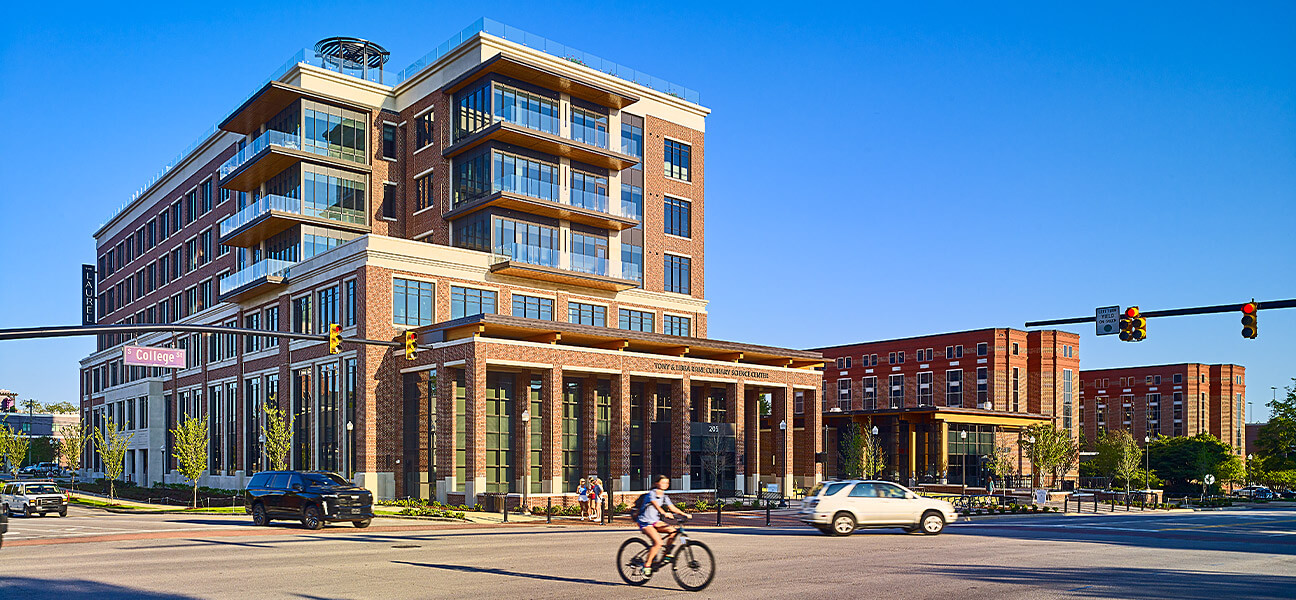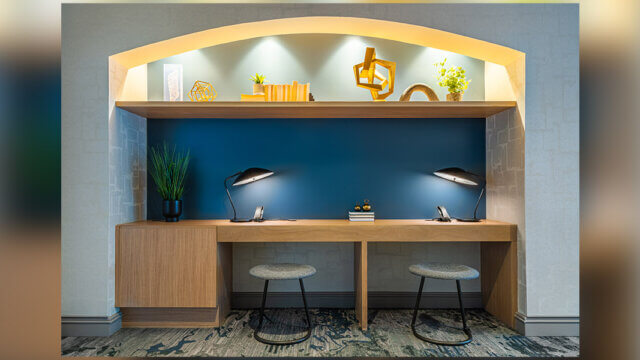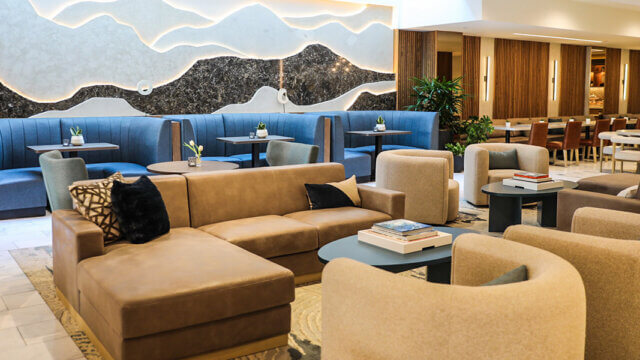Hotel Business spoke with Manny Dominguez, principal at design firm Cooper Carry, to discuss what it takes to design hotels on or near college campuses.
 How do you approach hotel projects that are near or on college campuses? Is it different than other hotel projects?
How do you approach hotel projects that are near or on college campuses? Is it different than other hotel projects?
Just being near a campus isn’t enough; that’s a missed opportunity for a university hotel. Many institutions are realizing they don’t want to leave a campus stay entirely in the hands of someone else. Instead, they are partnering with operators and brands in thinking through how a hotel can contribute to their mission and their messaging. A thoughtful and mission-aligned hotel design can make a big impact on recruiting talent, from students and student-athletes to professors and researchers. It can and should be a portal between town and gown, welcoming in the community as a gathering place. It is a hub for alumni with deep ties and numerous visits. These hotels aren’t just for move-in or parents’ weekend, they are an integral part of the business of a university. We design them to meet the demands of the market, with a high utilization mindset and an understanding of mission.
Is there a difference when a hotel is on the campus versus near the campus?
Many of the projects we’re doing are on or adjacent to campus, where we focus on creating context and a visual connection between the university and community. We’re focused on the first handshake with a guest, where the hotel is often the very first stop on their visit. When you arrive what do you see? What is the experience? How does it lead you into the other experiences you will have on this campus?
How much do you include the college’s history in the design? Can you give us some examples?
Certainly, context matters. The design must make sense as part of the campus environment and surrounding community and history. For example, the design of Charlottesville’s Forum Hotel, a Kimpton property nestled on the UVA Darden campus, was influenced by the university’s Jeffersonian architecture. It recalls the historic character of the university while adapting selected forms to respond to current-day constructability and functionality. While strict care was taken on the exterior to design accurately with regard to proportion and classical architectural elements, some features, such as windows, were enlarged to allow light to fill the interior guestrooms and public spaces.
I would add, though, that while hotels at great universities may have references to history in their design, that’s not the whole story. These places honor what’s great about a university, but they’re not about looking back. We find these clients are very focused on what’s next, how they’ll draw the student body and staff of the future and how they can use the hotel as a strategic growth tool.
The Laurel Hotel and Spa at Auburn University includes educational components. How did you approach the design?
Universities can use hotels and restaurants as part of world-class hospitality, culinary science and management programs. The Tony & Libba Rane Culinary Science Center at Auburn University serves as an academic resource for students interested in food and beverage or hospitality-focused careers, while providing access to real-world learning experiences. The Laurel Hotel & Spa, part of the Science Center, is a boutique hotel with 16 rooms, 10 suites, six residences, as well as a full-service spa, fitness center, rooftop pool and yoga pavilion.
One of our main design challenges was to provide all of the luxuries of a five-diamond hotel into a small footprint, while maximizing keys. The design process included the exploration of many room types and arrangements. Alongside ownership, Cooper Carry ultimately decided to utilize only king-bed guestrooms to maximize the number of rooms available. Guests opting for more space can upgrade to a king-bed suite with a separate living room that includes a top-of-the-line sofa bed for additional guests. While students are staffed in the hotel as part of their learning experience, the hotel features a separate entrance away from the hustle and bustle of the food hall and main educational facilities. All of these elements contribute to the elevated experience of an exclusive hotel. In fact, The Lauren Hotel & Spa is the first hotel in the state of Alabama to become a member of Preferred Hotels & Resorts.
Is there anything else you would like to add?
We always work to incorporate touches that demonstrate what makes each university and its programs special. At UVA’s Darden School of Business, first-year students work in learning teams of five to six students each as they go through real-world case studies. When we learned this, we created encounter spaces throughout the hotel all of which have six seats, just right for a standard MBA team size.


